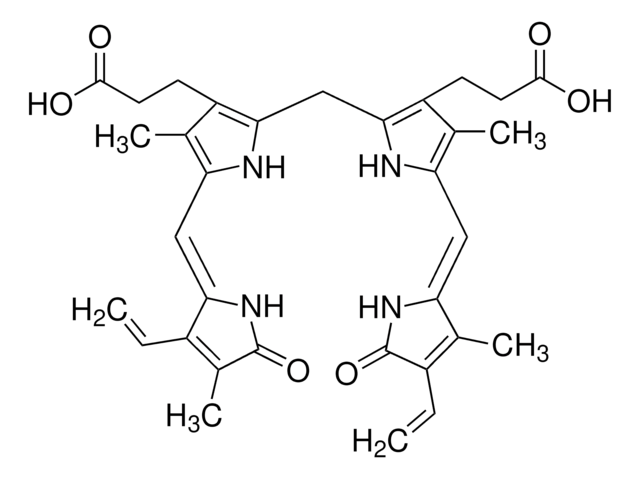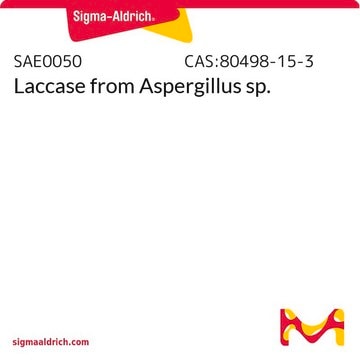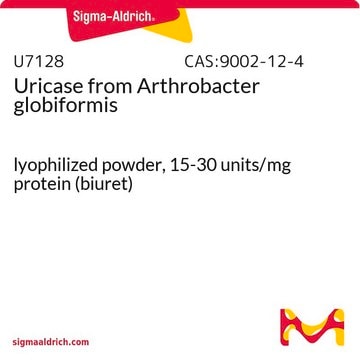B0390
Bilirubin Oxidase from Myrothecium verrucaria
lyophilized powder, 15-65 units/mg protein
Synonym(s):
MvBOx, Bilirubin:oxygen oxidoreductase
About This Item
Recommended Products
biological source
fungus (Myrothecium verrucaria)
form
lyophilized powder
specific activity
15-65 units/mg protein
composition
Protein, ≥15% biuret
storage condition
(Keep container tightly closed in a dry and well-ventilated place.)
greener alternative product characteristics
Waste Prevention
Design for Energy Efficiency
Learn more about the Principles of Green Chemistry.
sustainability
Greener Alternative Product
technique(s)
toxicology assay: suitable
greener alternative category
, Enabling
shipped in
dry ice
storage temp.
−20°C
Looking for similar products? Visit Product Comparison Guide
Related Categories
General description
Bilirubin oxidase (BOD) belongs to the subclass of the multicopper oxidase family. It is usually found in fungi.Bilirubin Oxidase is composed of three cupredoxin-like domains that result in two active sites formed by four copper ions. Research area: Apoptosis
Application
Biochem/physiol Actions
Unit Definition
related product
substrate
Signal Word
Danger
Hazard Statements
Precautionary Statements
Hazard Classifications
Resp. Sens. 1
Storage Class Code
11 - Combustible Solids
WGK
WGK 1
Flash Point(F)
Not applicable
Flash Point(C)
Not applicable
Personal Protective Equipment
Certificates of Analysis (COA)
Search for Certificates of Analysis (COA) by entering the products Lot/Batch Number. Lot and Batch Numbers can be found on a product’s label following the words ‘Lot’ or ‘Batch’.
Already Own This Product?
Find documentation for the products that you have recently purchased in the Document Library.
Customers Also Viewed
Our team of scientists has experience in all areas of research including Life Science, Material Science, Chemical Synthesis, Chromatography, Analytical and many others.
Contact Technical Service














